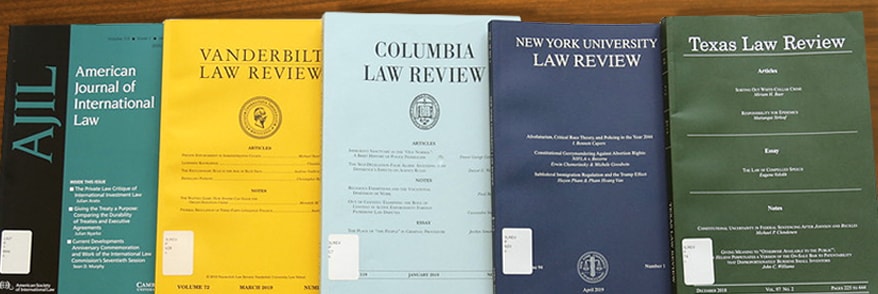
Brooklyn Law School faculty members are engaged in scholarly work on critical issues in the law and policy. Their nationally recognized scholarship is published in top law reviews and has a substantial influence in the legal community and beyond. Their work has been cited by courts, including the U.S. Supreme Court, shapes law and policy across the country, and fuels the dynamic intellectual life of the Law School.
Latest Faculty Scholarship
William Araiza
Vice Dean and Stanley A. August Professor of Law
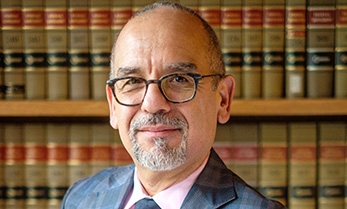
Animus, Again, 34 William & Mary Bill of Rights Journal __ (forthcoming 2025)
With the new administration issuing multiple executive orders targeting immigrants and transgender people, Araiza looks at the legal tools that litigants can deploy to challenge them, specifically equal protection animus. Relying on the Supreme Court’s surprising revival and regularization of the animus idea in 2020, he concludes that animus can be a useful tool for equality litigators in current and future equality- and rights-infringing actions.
Jonathan Askin
Professor of Clinical Law and Director of the Brooklyn Law Incubator & Policy (BLIP) Clinic
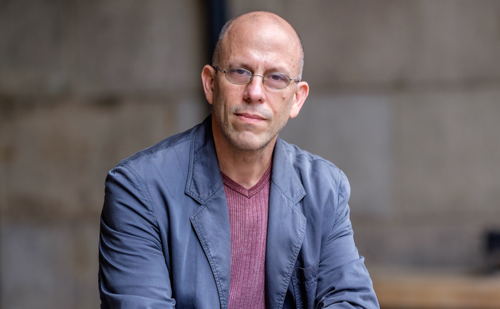
From Data Co-opting To Data Co-oping: Using New Corporate Structures, Data Corporate-hood, And Data Personhood To Prioritize Data Privacy, 20 UC Law Business Journal UC Law SF Bus. L.J. 177 (2024).
In this article, Askin argues that traditional privacy laws fail to protect individuals from corporate and governmental exploitation of personal data. He proposes innovative structures—such as data cooperatives, trusts, and new corporate forms—that empower communities to reclaim ownership and governance. Exploring concepts like “data corporate-hood” and “data personhood,” the paper envisions a legal architecture that democratizes data governance and safeguards dignity in the algorithmic era.
Jodi Balsam
Professor of Clinical Law

Fumbling Antitrust: Fallacies in the NFL Sunday Ticket Litigation, 16 Harv. J. Sports & Ent. L. 235 (2025)
Balsam chronicles the history of and legal frameworks governing sports television rights and distribution and explores the application of antitrust law to broadcasting deals. Against the backdrop of the NFL Sunday Ticket antitrust class action, she exposes the fallacies of (1) using antitrust to condemn legitimate exploitation of game telecast copyrights, and (2) gerrymandering antitrust market definitions to overstate sports league market power.
Aissatou Barry
Assistant Professor of Law and Director of the Housing Justice Clinic
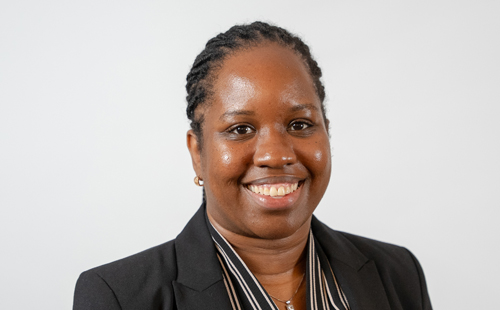
Evicting Evictions, 53 Fordham Urb. L.J. 97 (2025).
Housing courts have gone from a forum where tenants and landlords resolve lease and habitability disputes to a graveyard for housing security. In nonpayment of rent proceedings, the lack of remedies available to low-income tenants makes evictions a certainty. Barry contends that repudiating evictions as a resolution for these proceedings would allow equitable solutions for all parties.
Alissa Bauer
Associate Professor of Legal Writing
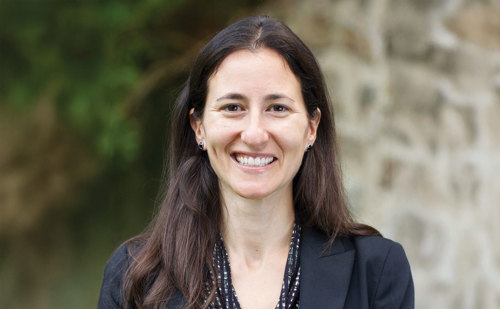
Teaching Cases: How Legal Writing Textbooks Approach the Rule Support Section, 29 Legal Writing 127 (2025)
The article summarizes Bauer’s empirical analysis of the 15 most popular first-year legal writing textbooks and describes the varied ways that they address the rule support section, sometimes called case illustrations, rule explanations, rule proof, or a variety of other terms. Her analysis finds that the textbooks explain some of the most basic and fundamental questions about the rule support section in different ways.
Anita Bernstein
Anita and Stuart Subotnick Professor of Law
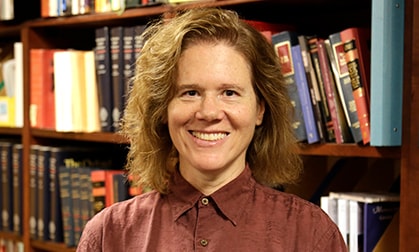
Making the Best of Semen: Prospects for Law and Regulation (NYU Press, December 2025)
The benefits and harms that semen delivers when it travels onto mucosa are extraordinary. In Making the Best of Semen, Bernstein lays out an unmentionability problem that shields semen from controls and documents the upheavals for which it is responsible. Some of these upheavals harm, or even end, human lives; others are extraordinarily desired and desirable. Regulation can improve both consequences.
Dana Brakman Reiser
Centennial Professor of Law

Trust and Scale in Global Social Enterprise Law, 22 Stanford Social Innovation Rev. 38 (2024)
Social enterprises aim to use business methods to solve social problems. Legal frameworks for them can promote scaling up these organizations and help communicate that these dual mission organizations can be trusted. Brakman Reiser reveals that these two goals for social enterprise law will often conflict, creating a challenging trade-off for legislators, regulators and advocates.
Michael T. Cahill
Professor of Law and Emeritus President & Dean

Markel and Abolition, 52 Florida State University Law Review __ (forthcoming 2025)
In this short article, written for a symposium honoring the memory of the late Professor Dan Markel, Cahill discusses the relationship between Markel’s work and contemporary abolitionist scholarship in criminal law.
Stacy Caplow
Professor of Law

and
Maryellen Fullerton
Suzanne J. and Norman Miles Professor of Law

Immigration Venue Exceptionalism, 111 Cornell L. Rev. __ (forthcoming 2026)
By claiming the sole power to determine when and where to initiate deportation proceedings, the government can strategically set removal hearings in maximally inconvenient locations that are notorious for immigrant-unfriendly law. Using the highly publicized case of Mahmoud Khalil as an exemplar, Caplow and Fullerton expose the significant role of immigration venue exceptionalism, the unfairness that has developed in recent years, and the urgent need for reform.
Jon Endean
Assistant Professor of Law
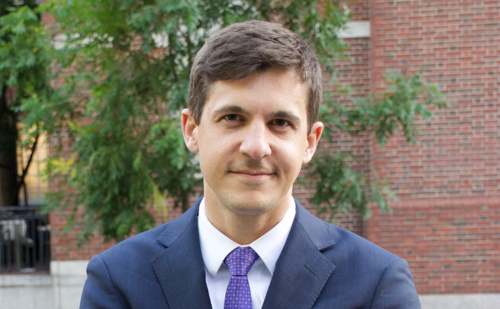
Tariffs as Taxes: A Framework for Understanding Delegation of the Taxing Power, 63 San Diego L. Rev. __ (forthcoming 2026)
Endean argues that there are two principles that emerge from understanding the history of the taxing power: (1) taxes can only be imposed with the consent of the governed and (2) taxes are distinct from other Article I enumerated powers. He argues for a structural canon under which purported delegations of the taxing power to the President be evaluated and be permitted only when Congress has clearly stated its intent to specifically delegate its taxing power.
Kerry Fulham
Assistant Professor of Legal Writing

Punishment without Principle: HIV Criminalization and the Sex Offender Registry, 28 N.Y.U. J. Legis. & Pub. Pol’y __ (2026).
Fulham critiques HIV-specific criminal statutes that mandate sex offender registration, arguing that such laws impose one of the harshest penalties absent transmission, intent, or proportional justification. Examining these statutes through the lens of punishment theory, she contends they reflect stigma and moral panic rather than coherent penal principles, and calls for reforms aligning criminal law with justice, proportionality, and public health.
Cynthia Godsoe
Associate Dean for Faculty Research and Scholarship, Dean’s Research Scholar, and Professor of Law
with Shanta Trivedi

Parenting as a Crime, 15 Cal L. Rev. Online 13 (2024)
Godsoe and Trivedi address the recent high-profile prosecutions of parents when their children commit school shootings, arguing that while the emotion driving these prosecutions is understandable, they are legally unsound and ignore the real, structural causes of these cases, such as the adolescent mental health crisis and the lack of gun control. This approach is flawed, and these prosecutions will, if anything, make children and society less safe.
Michael Haber
Assistant Professor of Law & Director of the Community Development & Movement Infrastructure Clinic

When the Executive Accidentally Supported the Movement: Participatory Democracy and the Rise of the Non-Profit Industrial Complex, 15 Colum. J. Race & L. 1285 (2025)
Criticism of the role of the nonprofit sector in constraining social movements (sometimes called the “nonprofit industrial complex”) has been an important intervention in studies of grassroots social change. This article traces the implementation of 1964’s Community Action Program (“CAP”), arguing that efforts to rein in CAP’s “maximum feasible participation” mandate were a pivotal moment in the development of the nonprofit industrial complex.
Alexis Hoag-Fordjour
David Dinkins '56 Professor of Law and Co-Director of the Center for Criminal Justice

Universal Public Defense, 60 Harv. C.R.-C.L. L. Rev. 661 (2025)
Hoag-Fordjour introduces a provocative thought experiment: state-funded defense counsel as a universal mandate for all people facing criminal charges. The Article invites readers to envision a reality where defendants with means are placed on the same footing as those without, and to consider how this new defense model might impact the criminal adjudication system and the actors within it.
Vijay Raghavan
Professor of Law
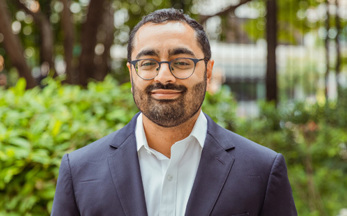
The Radical Potential of Consumer Financial Protection, 66 Boston College L. Rev. 1345 (2025)
This article retheorizes consumer financial protection as a counter to legally structured domination in money and finance. Tracing twentieth-century fights over fringe lending, Regulation W, and credit discrimination, Raghavan argues consumer financial protection works best when embedded in market governance, defends the reform efforts of the last 15 years and outlines lessons for future reconstruction and reform.
Jayne Ressler
Associate Professor of Law
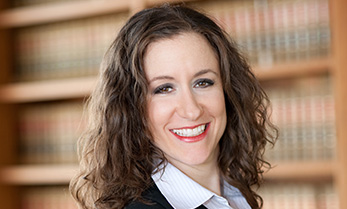
Juror Privacy via Anonymity, 93 Fordham L. Rev. 611 (2024)
Ressler assesses the institution of anonymous juries through the lens of juror privacy. She argues that anonymous juries should become the default practice in most criminal and civil trials. Ressler explains how routinely impaneling anonymous juries can meet the challenge of protecting juror privacy in the twenty-first century while safeguarding fair trials and protecting public access to the judicial process.
Anna Roberts
Dean’s Research Scholar and Professor of Law

Interrogating the Facts of the Case, 101 Ind. L.J. __ (forthcoming 2026)
Canonical criminal cases rely on the alleged results of interrogation for their “facts.” Roberts argues that criminal law professors should include interrogation in their first-year classes, to get students curious about such things as (a) the relevance of resources to understandings of “guilt”; (b) the government’s role in creating the “facts” of the cases that they study; and (c) the government’s role in creating “crime.”
Lauren Roberts
Visiting Assistant Professor of Legal Writing

The Cost of Showing Up, Northwestern University Law Review Online, Vol. 120, (2025)
Roberts examines the heavy burdens of mandatory in-person misdemeanor criminal court appearances on disadvantaged populations. It proposes that people charged with misdemeanors be permitted to waive in-person appearances for nonessential court dates, preserving judicial and public resources while mitigating the punitive effects of prolonged court involvement on criminal defendants and their communities.
Jocelyn Simonson
Herman Badillo ’54 Professor of Law

The Part IV Problem in Legal Scholarship, 126 Columbia Law Review Forum (forthcoming 2026) (w/Sabeel Rahman)
The authors call for an end to the de facto requirement that a law review article conclude with a list of actionable and feasible prescriptions, usually law or policy reforms, that respond to the article’s analysis. Rather than abandoning prescriptive work, rethinking Part IV conventions enables our academic writing to match our wildest, most idealistic dreams, and the interventions, big and small, feasible and fanciful, that can achieve them.
Danielle Tully
Professor of Legal Writing
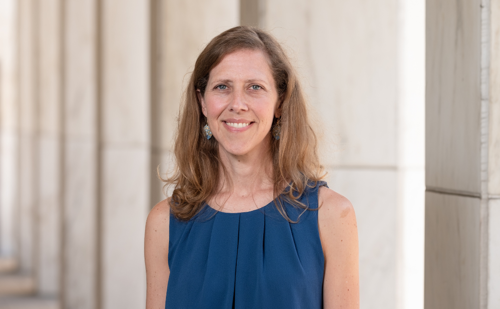
Behind The Curve: Rethinking Norm-Referenced Grading in First-Year Legal Writing Courses, 29 Legal Writing 1 (2025).
In addition to reporting on the current grading landscape, Tully contextualizes this data within a grade curve trend that began in the 1970s. She also argues that law schools should reevaluate grading policies and adopt new methods for communicating student achievement to meet both their student equity and belonging goals and the needs of the profession and the public.
2024 Faculty Scholarship
William Araiza
Stanley A. August Professor of Law

One-Offs, 109 Cornell L. Rev. 263, (2024)
Araiza examines the phenomenon of "one-offs": court opinions that are rarely cited by the issuing court, and that that do not explicitly generate further doctrinal development. His analysis of three such cases from the U.S. Supreme Court finds they play a surprisingly legitimate role in legal and doctrinal development.
Jodi Balsam
Professor of Clinical Law and Director of Externship Programs

False Start on NIL: Public and Private Law Should Treat College Athletes Like Any Other Student, 11 Tex. A&M L. Rev. 785 (2024)
Instead of specialized private rules and public law that govern how student athletes monetize their name, image and likeness (NIL), Balsam writes that there should be a principle of nondiscrimination that deals in the same way with all college students who seek to benefit from and monetize their identities and publicity rights.
Alissa Bauer
Assistant Professor of Legal Writing

One Tort, Four IRACs, and Five Lessons About Rule Support Cases, BrooklynWorks, Faculty Scholarship. 1559
This article explores the significance of rule support cases, sometimes called case illustrations, rule explanations, or rule proof, in the IRAC structure. It uses a negligent infliction of emotional distress fact pattern to demonstrate five important lessons regarding how rule support cases help students set up effective and targeted application.
Anita Bernstein
Anita and Stuart Subotnick Professor of Law

Renewing Products Liability with Semen, DePaul Law Review, Vol. 73, No. 2, p. 211, 2024, Brooklyn Law School, Legal Studies Paper No. 768
To renew is to combine old and new. Extending Bernstein’s earlier writings on the formation of new torts that located this combination in tort innovation, this article applies the lens of “renewing” within products liability to one product in particular, semen.
Bradley T. Borden
Professor of Law

Tax-Law Analysis, 18 Brook. J. Corp. Fin. & Com. L. 385 (2024)
Congress recognizes that there are areas of uncertainty in tax law and only imposes penalties if the authority supporting a reporting position is not adequate. To determine the strength of a reporting position, a tax advisor must be able to identify and analyze legal authority that relates to the reporting position and determine whether the weight of authority that supports the desired reporting position is sufficiently strong to outweigh the authority that is contrary to it. Borden explores how tax rules direct practitioners to accomplish this weighing process.
Maryellen Fullerton
Suzanne J. and Norman Miles Professor of Law

Temporary Protection for Ukrainians in the European Union: Why Now and When Again, 57 Vanderbilt Journal of Transnational Law 91 (2024)
The 2022 Russian invasion of Ukraine led to a successful rollout of the first EU-wide temporary protection program since legislation was enacted in 2001. Civil society played a central role in assuring legal status within the European Union for more than four million displaced individuals. Fullerton explores the patterns of civic engagement and social solidarity to strategize fruitful responses to future refugee crises.
Temporary Protection in the United States and the European Union: Same Words, Vastly Different Meanings, 9 University of Pennsylvania Journal of Law and Public Affairs 1 (2024)
“Summary Procedures” (with W-Y. Chen) Comparative Procedural Law and Justice (eds. B. Hess, M. Woo, L. Cadiet, S. Menétrey, and E. Vallines García) (2024)
Immigration and Nationality Laws of the United States: Selected Statutes, Regulations and Forms Thomson West Publishing Co. (with T.A. Aleinikoff, D. Martin, H. Motomura, J. Stumpf, P. Gulasekaram, and R. Cuison-Villazor) (2024)
Heidi Gilchrist
Professor of Legal Writing and Co-Director of Legal Research and Writing

Ukraine, Moral Outrage, and International Law, 84 Ohio St. L.J. 1465 (2024)
Using the Russian invasion of Ukraine as a focal point, Gilchrist explores the role of emotion, specifically moral outrage, in international law. The paper addresses the question of whether the international community can harness the incredible moral outrage at the unprovoked Russian invasion of Ukraine to hold Russia accountable.
Cynthia Godsoe
Professor of Law
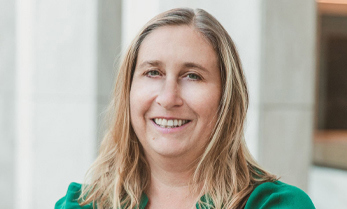
Disrupting Carceral Logic in Family Policing, 121 Michigan Law Review 939 (2023)
Using a review of Professor Dorothy Roberts’ book, Torn Apart: How the Child Welfare System Destroys Black Families and How Abolition Can Build a Safer World, as a springboard, Godsoe explores the carceral logics of the family-policing system and, particularly, the role of lawyers in maintaining and legitimating these logics.
Criminalizing Community, Policing Space: Conspiracy, Young Thug & the “Stop Cop City” Protestors, Harv. L. Rev. Blog (Aug. 28, 2024)
Kinship Care and Adoption Myopia (Brooklyn Law School, Legal Studies Paper No. 784, December 2024)
A Perfect Storm: Young People, False Confessions & Prosecutorial Involvement (Brooklyn Law School, Legal Studies Paper No. 783, December 2024)
Edward J. Janger
David M. Barse Professor of Law

Equity for Intermediaries: The Resolution of Financial Firms in Bankruptcy and Bank Resolution, Yale Journal on Regulation, Vol. 41, p.965, 2024
In this essay, Janger considers recent bank failures and bankruptcies of crypto intermediary to develop general principles for bankruptcy courts and other resolution institutions to mitigate the harms to customers and the financial system caused by financial misdeeds and regulatory failure.
Functional Tort Principles for Internet Platforms: Duty, Relationship, and Control, 26 Yale J.L. & Tech. 1 (2023)
Enterprise, Liability, and Insolvency: An Essay in Honor of Aaron Twerski, 18 Brook. J. Corp. Fin. & Com. L. 115 (2023)
Impact Ipsa Loquitur: A Reverse Hand Rule for Consumer Finance Susan Block-Lieb, Edward J. Janger, Cardozo Law Review, Vol. 45, No. 4, 2024; Fordham Law Legal Studies Research Paper No. 4802893; Brooklyn Law School, Legal Studies Paper Forthcoming
Yuvraj Joshi
Associate Professor of Law

Racial Time, 90 University of Chicago Law Review 1625 (2023)
Racial time describes how inequality shapes people’s experiences and perceptions of time. This article argues that U.S. law embodies dominant interests in time. By inscribing dominant experiences and expectations of time into law, the Supreme Court enforces unrealistic timelines for racial remedies and “neutral” time standards that disproportionately burden subordinated groups.
Racial Equality Compromises, 111 Cal. L. Rev. 529 (2023)
Joy Kanwar
Professor of Legal Writing

Writing and Analysis in the Law, Foundation Press (April 2024)
This standard-bearing book’s 8th, co-written with Elizabeth Fajans and Helene S. Shapo, provides a guide to legal writing, focusing on thoughtful, thorough analysis and clear organization in written communications. It responds to legal education’s increased attention to professional identity and cultural competence, provides an expanded section on inclusive language, and discusses generative artificial intelligence.
Catherine Y. Kim
Don Forchelli Professor of Law

Citizenship Outside the Courts, 57 U.C. Davis L. Rev. 253 (2023)
To what extent should political actors determine constitutional citizenship? Kim examines three pivotal episodes from U.S. history involving the contestation of citizenship for Black Americans in the early to mid-19th century; the denial of citizenship to Chinese Americans in the 1882 -1943 Exclusion Era; and the stripping of citizenship from American women who married noncitizens pre-1922.
Adam Kolber
Professor of Law

Punishment for the Greater Good, (Oxford University Press, June 2024)
In this new book on criminal punishment, Kolber asks: What, if anything, justifies the suffering and deprivation of liberty associated with incarceration and other forms of punishment? He defends a “consequentialist” approach that focuses on deterring, incapacitating, and rehabilitating offenders over the more common “retributivist” approach that focuses on deserved suffering.
Shirley Lin
Associate Professor of Law
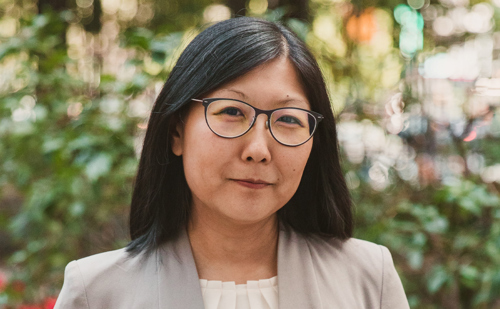
Race, Solidarity, and Commerce: Work Law as Privatized Public Law, 55 Ariz. St. L.J. 813 (2023)
What if work law allowed us to understand racism as central to legal liberal frames, rather than ancillary or topical? Deploying history and political theory, Lin demonstrates how public/private dyads within work law generated unworkable, often divisive conceptions of race and commerce, hindering our pursuit of a thriving, multiracial democracy.
Christina Mulligan
Professor of Law
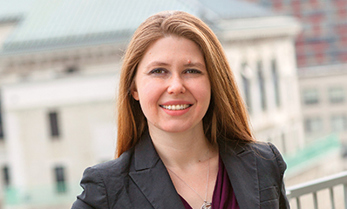
Diverse Originalism, History, and Tradition, 99 Notre Dame Law Review 1515 (2024)
The Supreme Court's New York State Rifle & Pistol Ass'n v. Bruen decision appears to be an originalist opinion, ostensibly looking for the meaning of the Constitution's text through the public's understanding of its language. But the court failed to follow a public meaning originalist methodology, leading to two unfortunate outcomes.
Naveen Thomas
Assistant Professor of Law

Mythical Adverse Effect, 73 Emory L.J. 887 (2024)
The material adverse effect definition is among the most intensely negotiated provisions in M&A contracts. Challenging conventional wisdom, Thomas applies legal and economic analysis to explain that, under Delaware law, parties should not customize these definitions and should devote their limited time and leverage to more impactful terms instead.
Stratos Pahis
Associate Professor of Law

Appeals After the Appellate Body, 23 World Trade Rev. 296 (2024) (peer reviewed)
The Appellate Body (AB) of the World Trade Organization (WTO) has not heard an appeal since 2019. This article explores how adjudicators and member states have navigated WTO dispute settlement in this post-AB world.
Rethinking International Investment Law: Form, Function & Reform 63 Va. J. Int'l L. 447 (2023)
Anna Roberts
Professor of Law

Models and Limits of Federal Rule of Evidence 609 Reform, 76 Vand. L. Rev.1879 (2023)
Federal Rule of Evidence 609, which permits the use of certain convictions to attack the “character for truthfulness” of witnesses, is widely criticized. Roberts presents three responses, including a model for how one might rewrite the rule, a set of proposals for judges and prosecutors, and an exploration of abolitionist concerns.
Maria Termini
Professor of Legal Writing and Co-Director of Legal Research and Writing

Negative Language in Legal Writing, Legal Communication & Rhetoric: JALWD 20 (2023)
Conventional wisdom holds that legal writers should be positive; however, recent legal writing scholarship has explored the benefits of negativity that stem from “negativity bias.” Termini distinguishes between two types of negative language used in legal writing: negation and negative valence, and proposes six principles to guide legal writers in choosing between positive and negative language.
